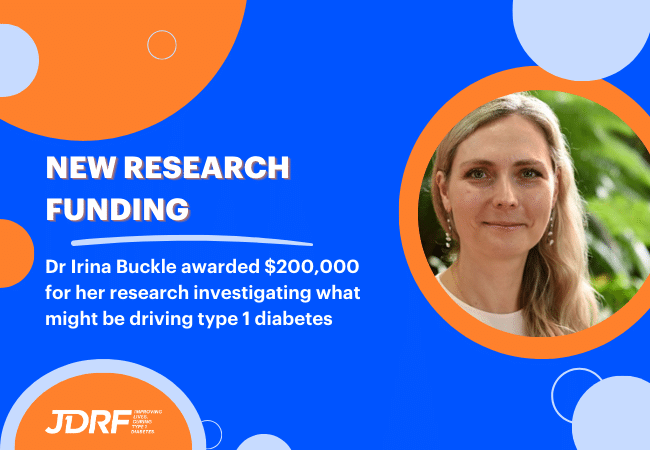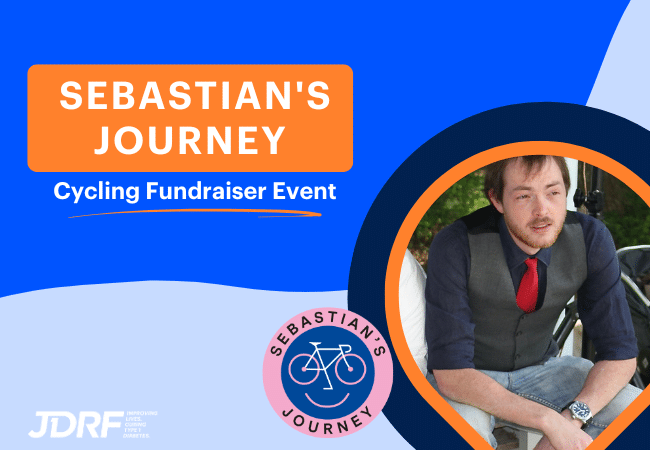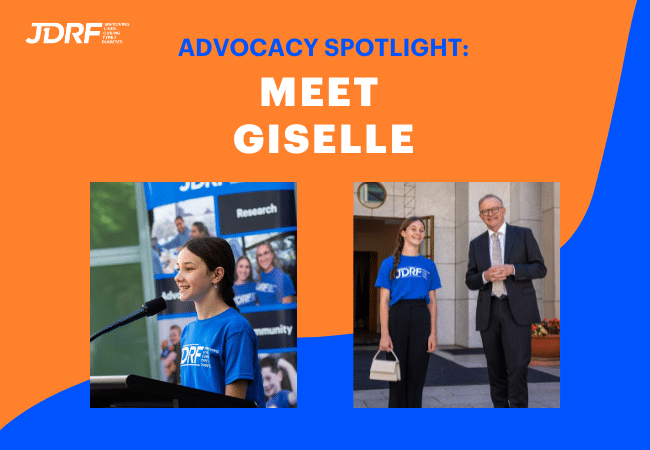Coping with a type 1 diabetes diagnosis as an adult

This article is from Straight to the Point, a guide written for adults with type 1 diabetes. Download your free copy here.
When you were told you had type 1 diabetes (T1D) you probably felt as if your world had been turned upside down. You may have felt like screaming or just curling up in a ball – all of this is perfectly normal. Unfortunately diabetes isn’t going away, but over time you will learn how to fit diabetes into your life.
You may find the first couple of weeks are the worst as you come to terms with managing your type 1 diabetes, including injecting insulin and pricking your fingers to do blood checks. There is also a lot you need to learn, such as counting carbohydrates, understanding how type 1 diabetes can impact your body when you exercise, how to recognise and treat a hypo… the list goes on.
If it is all too much for you, let your endocrinologist or diabetes team know; they’re there to help you. And don’t be embarrassed to ask them to slow down if they provide you with too much information at once.
You may also be too busy learning how to manage your diabetes to think about how you are feeling about your diagnosis. The realisation that diabetes is for life may not hit you for several weeks or months. This is often the time people assume you are coping, yet this may be the time you feel the worst.
How you may feel after T1D diagnosis
Being diagnosed with type 1 diabetes as an adult can be difficult. There’s a lack of understanding about diabetes in the community, and people often do not expect an adult to be diagnosed with type 1 diabetes.
It can help to chat with others in your position: JDRF offers a Peer Support Program and private Facebook groups to put you in touch with other adults living with T1D.
Common feelings and thoughts after a type 1 diabetes diagnosis include:
- Shock: “What the …?”
- Denial: “No – this isn’t real! I want a second opinion!”
- Fear: “How am I going to cope? This is going to destroy my life!”
- Grief: “This is so unfair. I feel so unhappy.”
- Loss: “I wish things were how they used to be.”
- Hopelessness: “Life is never going to get better for me.”
- Despair: “Why me?”
- Relief: “At least I know now why I have been feeling like this.”

Dealing with your T1D diagnosis
After learning of your diagnosis, you may find it hard to accept you now have type 1 diabetes. Most people go through some kind of denial when they are first diagnosed – it can be like a voice inside repeating, ‘Not me… I don’t believe it… There must be some mistake.’ This is a natural reaction and is so common that it’s accepted as part of the process of dealing with the diagnosis.
Initially this response serves a purpose; it is a way of coping with bad news. It can keep you from getting overwhelmed and depressed and allows you to accept information little by little, when you are ready. As you do this, feelings of denial should slowly be replaced by acceptance. If denial seems to be hanging around and is destructive – such as leading you to miss insulin injections – it’s serious and you need to seek some support to get back on track. Ask someone in your diabetes care team for help or make an appointment with an experienced counsellor or psychologist.
Long-term denial can stop you from keeping yourself healthy. Denial may stay around for weeks, months or even years for some people. It may also come and go depending on what else is happening in your life. Sometimes when we have too much on our plate, it can seem easy to let diabetes care go. However, this usually adds to our stress as in the back of our minds we know the damage this could do. It is important to know you don’t have to do diabetes all by yourself. Family, friends and your diabetes care team are there to support and help you when you need it.
TIP: Mental health support is always available. Here’s a guide to help you find the mental health support you need.
Accepting your ‘new normal’ after a T1D diagnosis
Most people will eventually travel the road from what they know, and what was familiar to them, to diabetes being an accepted part of life. The time to do this varies. Some find it a short journey, others a long one. And sometimes we go backwards and forwards between being OK with diabetes and not being OK. This is all part of the process.
During this journey there are emotional ups and downs and some people say it is like being on a roller coaster ride. The ‘downs’ can bring feelings of grief, fear, denial and hopelessness; during the ‘ups’ you start to feel more comfortable with diabetes and then you might go on a downer again for a time – this is okay too! At some point you start to have more ups and fewer downs, which don’t last as long. You start to incorporate diabetes into life. In a way you ‘get-back on track’ with your life, with just a new chapter added to it.
Diabetes is a disease that requires you to take charge. Once you know, understand and feel comfortable with your diabetes, you are more likely to have less stress and be better able to manage your diabetes over the long term.
This article is from Straight to the Point, a guide written for adults with type 1 diabetes. Download your free copy here.




